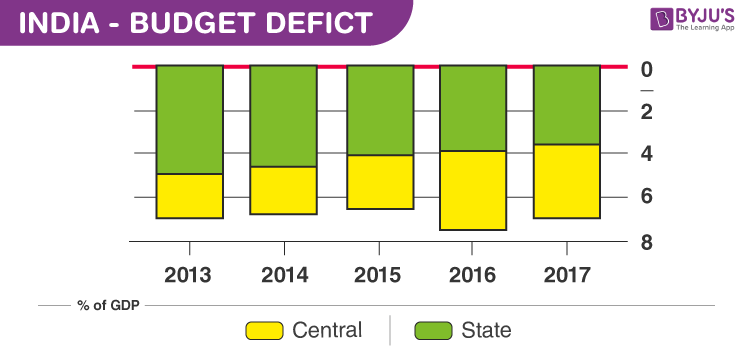What is a Budget?
A budget is an approximation of revenue and expenses over a defined future time frame; it is organised and re-conceptualised on a periodic basis. Budgets can be outlined for a person, a family, a group of people, an entity, a country, a multinational organisation, a government, or just anything else that makes and spends money. At institutions and organisations, budget is an internal mechanism inculcated by the management and is often not required for reporting by external parties.
Budget is classified into the following three parts:
- Balanced budget
- Surplus budget
- Deficit budget

What is a Balanced Budget?
A balanced budget is a condition in financial planning or the budgeting procedure where the total revenues are equivalent to or greater than the total expenditure. A budget can be considered[1] as balanced in experience after a complete year’s account of revenues and expenses have been recorded. A company’s budget for the upcoming year can be called balanced based on anticipations or approximate values.
What is a Surplus Budget?
A surplus budget is a condition when incomes or receipts overreach costs or outlays (expenditures). A surplus budget normally refers to the financial conditions of the governments. However, individuals choose to use the term ‘savings’ rather than ‘budget surplus.’ Surplus is a manifestation that the government is being effectively operated and regulated.
What is a Deficit Budget?
A deficit budget is said to have occurred when expenses exceeds the revenue and it is a symptom of financial health. The government normally uses this term to its spending instead of entities or individuals. Accrued government deficits form the national debt.
| 3-4 Mark Questions | |
| Q.1 What do you understand by a balanced budget? What are its merits and demerits? | |
| Answer: | |
| (A) Meaning | ● A government budget is in balance only if the budget receipts is [3] similar and equal to the budget expenditure.
● Budget expenditure = Budget receipts |
| (B) Merits and Demerits of balanced budget | Merits
a) It ensures financial stability. b) It avoids wasteful expenditure.
Demerits a) The process of economic growth can be hindered. b) Welfare activities may be restricted. |
| Q.2 What do you understand by an unbalanced budget? What is its significance? | |
| Answer: | |
| (A) Meaning and types of unbalanced budget | A government budget is said to be unbalanced if the estimated government receipts are not equal to the estimated government expenditure. |
| (B) Types of unbalanced budget | Surplus budget
● Estimated government. receipts > Estimated government expenditure ● Budget is surplus if the estimated government receipt[4] s is more than the estimated government expenditure. Deficit budget ● Estimated government expenditure > Estimated government receipts ● Budget is a deficit when the estimated government receipts are less than the estimated government expenditure. |
| (C) Significance of deficit budget | a) It accelerates economic growth.
b) It enables us to undertake welfare activities.
|
| 1-Mark Questions |
| Q.1 Define balanced budget. |
| Answer:
A government budget is said to be in balance if the budget receipts are equal to the budget expenditure. |
| Q.2 When is a budget said to be a surplus budget’? |
| Answer:
If the budget receipts are more than the budget expenditure, then the budget is termed as a surplus budget. |
| Q.3 When is a budget said to be a deficit budget? |
| Answer:
If the budget receipts are less than the budget expenditure, then the budget is termed as a deficit budget. |
The above-mentioned is the concept that is explained in detail about balanced, surplus, and deficit budget for Class 12 students. To know more, stay tuned to BYJU’S.
Comments